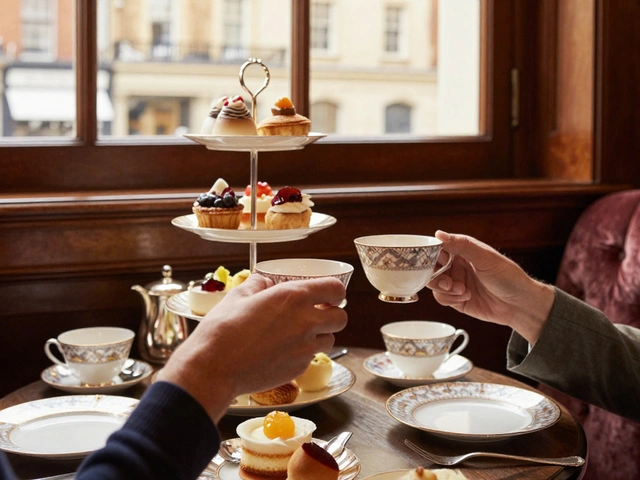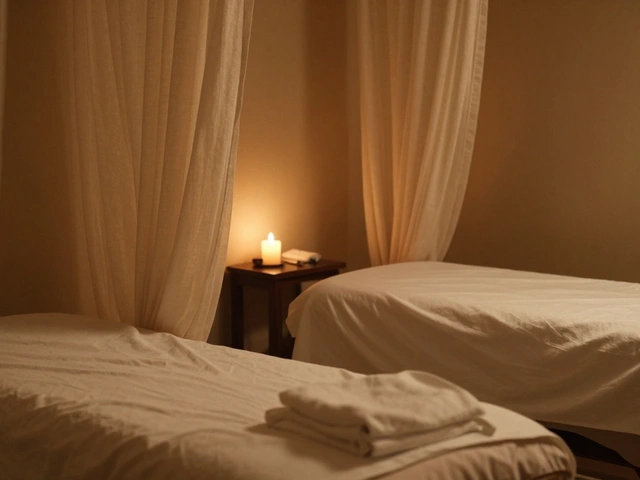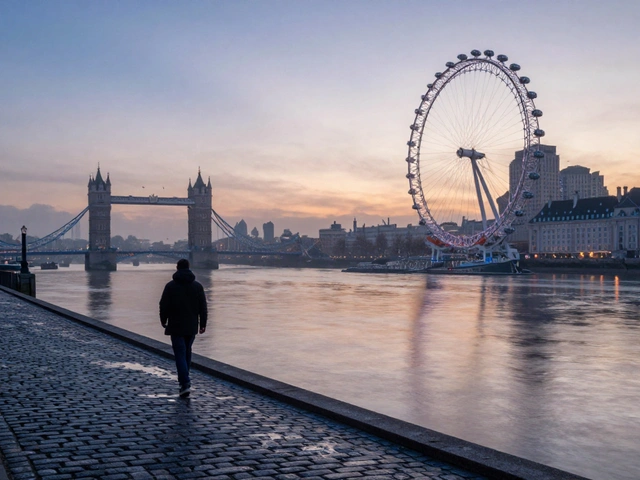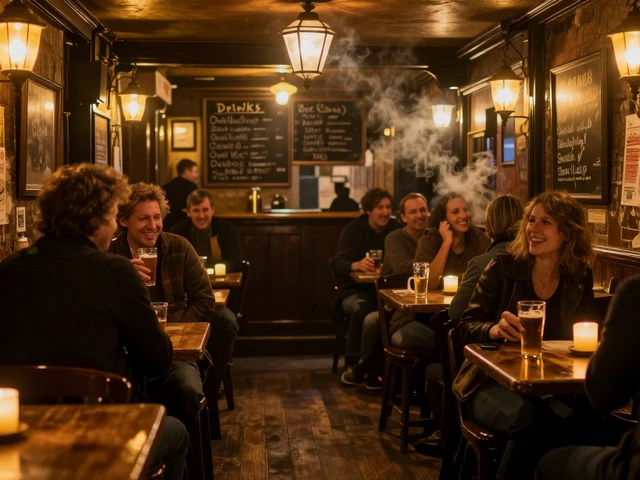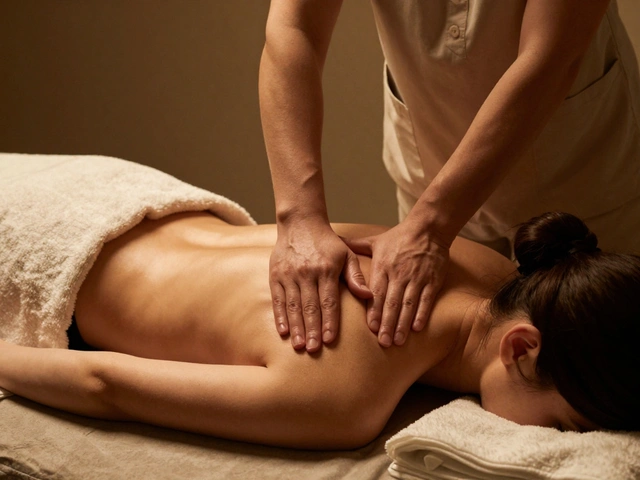Why London Nightlife Is Famous
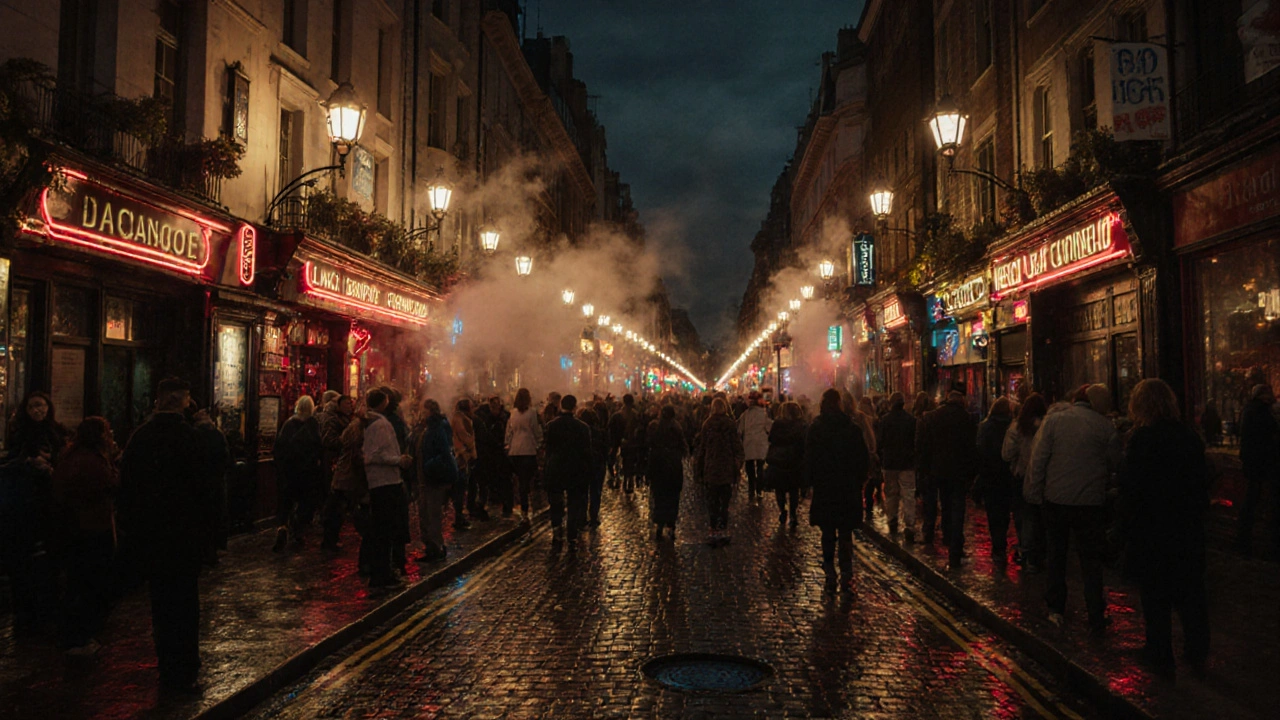
Why London Nightlife Is Famous
When it comes to London nightlife, few cities in the world can match its energy, variety, and sheer volume of options. From hidden speakeasies tucked beneath bookshops to massive clubs that stay open until dawn, London doesn’t just offer a night out-it offers dozens of them, each with its own personality. Whether you’re into jazz in a basement cellar, dancing to drum and bass in East London, or sipping craft gin in a rooftop bar with a view of the Thames, there’s a version of London nightlife that fits you. And it’s not just about the places-it’s the people, the history, the chaos, and the constant reinvention that make it unforgettable.
Understanding the Basics of London Nightlife
Origins and History
London’s nightlife didn’t start with neon signs and DJ booths. It began centuries ago in taverns and gin palaces, where sailors, merchants, and artists gathered after dark. By the 1700s, gin shops were everywhere, and the city earned a reputation for rowdy, unregulated drinking. The 19th century brought music halls, where working-class crowds laughed, sang, and danced under gaslight. After World War II, jazz clubs in Soho became hubs for Black American musicians and British rebels. The 1980s and 90s exploded with acid house, rave culture, and the birth of clubbing as we know it-places like Ministry of Sound and Fabric turned London into a global dance music capital. Today, that legacy lives on. Every decade adds a new layer: indie rock in Peckham, queer-friendly drag in Camden, silent discos in parks, and late-night food markets that keep the streets alive until 3 a.m.
Core Principles or Components
What makes London nightlife work isn’t just the number of venues-it’s the ecosystem. There are five key parts: diversity (every genre, price point, and vibe), accessibility (24-hour Tube lines on weekends, walkable neighborhoods), creativity (pop-ups, themed nights, hidden venues), tolerance (LGBTQ+ spaces, multicultural crowds), and timing (late closures, 24-hour food, and transport). Unlike cities where nightlife is concentrated in one district, London’s scenes are scattered across boroughs, each with its own rhythm. You can go from a traditional pub in Islington to a warehouse party in Walthamstow in under 30 minutes by train. That freedom is part of the magic.
How It Differs from Related Practices
Compared to other global nightlife hubs, London doesn’t rely on luxury or exclusivity. It’s not like Las Vegas, where everything is polished and expensive. It’s not like Berlin, where clubs run for days without a license. London strikes a balance-it’s wild but regulated, diverse but safe, chaotic but organized. Here’s how it stacks up:
| City | Key Feature | Primary Benefit |
|---|---|---|
| London | 24/7 transport + hyper-local scenes | Freedom to explore multiple vibes in one night |
| Berlin | Unregulated club hours, underground focus | Endless dancing, no curfews |
| New York | High-end venues, celebrity sightings | Prestige and exclusivity |
| Paris | Chic bars, late dinners, intimate settings | Style and romance |
Who Can Benefit from London Nightlife?
Everyone. Students on a budget can find £5 pint nights in Hackney. Professionals looking to unwind can sip whisky in Mayfair lounges. Tourists get curated walking tours of historic pubs. LGBTQ+ communities thrive in Vauxhall and Soho. Older adults enjoy live jazz in Chelsea. Even introverts can find quiet corners in book-bar hybrids like The Book Club in Peckham. London nightlife doesn’t force you into one mold. It lets you choose your version of fun-whether that’s dancing until sunrise, debating philosophy over cocktails, or just eating dumplings at 2 a.m. with friends.
Benefits of London Nightlife for Social Connection and Culture
Stronger Social Bonds
Humans are wired for connection, and London nightlife gives you endless chances to build them. A shared queue outside a club, a spontaneous conversation at a pub counter, or bonding over a terrible karaoke song-it all creates micro-moments of belonging. Studies show that regular social interaction outside of work or school reduces stress and loneliness. In London, you don’t need to plan a big night out to feel connected. Just walking down a street like Shoreditch on a Friday and seeing people laughing, dancing, or sharing food tells you: this city knows how to bring people together.
Cultural Exposure and Diversity
London is one of the most multicultural cities on Earth. That shows up in its nightlife. You can hear reggae in Brixton, K-pop dance parties in Chinatown, Afrobeat in Peckham, and traditional Irish folk in Camden-all in the same weekend. Clubs often host themed nights celebrating global cultures, from Brazilian Carnaval to Japanese enka nights. This isn’t just entertainment-it’s education. You leave a night out in London not just tired, but wiser. You’ve tasted new music, met people from different backgrounds, and maybe even tried food you’d never heard of before.
Emotional Well-Being and Stress Relief
After a long week, nothing beats letting go. London nightlife offers a pressure valve. Whether it’s screaming along to a live band, losing yourself in a beat, or just laughing with friends over too many cocktails, these moments reset your nervous system. The British Psychological Society notes that social activities like dancing and live music can lower cortisol levels and boost endorphins. You don’t need a therapist to feel better-you just need a good playlist and a crowd.
Practical Applications in Everyday Life
London nightlife isn’t just about fun-it shapes how people live. Many find jobs in hospitality, music, art, or event planning because of it. Others learn confidence, communication, or even language skills through nightly interactions. For international students, it’s often their first real taste of independence. For locals, it’s a way to reclaim time after long workdays. Even the city’s economy runs partly on it-nighttime businesses contribute over £20 billion annually to London’s GDP. That’s not just nightlife. That’s a lifeline.
What to Expect When Engaging with London Nightlife
Setting or Context
Don’t expect uniformity. One night you’re in a candlelit wine bar with vinyl spinning, the next you’re in a warehouse with strobe lights and a bass so loud you feel it in your ribs. The setting changes by neighborhood. Soho is buzzing, electric, and crowded. Dulwich has cozy pubs with open fires. Peckham has gritty, creative spaces with art on the walls. East London feels like a secret you stumbled into. You’ll need to adapt your outfit, your mood, and your expectations. There’s no single London night-it’s a collage.
Key Processes or Steps
Most nights follow a simple rhythm: 1. Decide your vibe (dancing? drinking? live music?). 2. Pick a zone (Soho for glam, East for indie, South Bank for views). 3. Check opening times (some places close at 1 a.m., others at 4 a.m.). 4. Get there early (lines grow fast). 5. Stay flexible (if one place is packed, try the next). 6. Eat something (London’s 24-hour food scene is legendary-try a kebab, dumplings, or a bacon sandwich at 3 a.m.). 7. Get home safely (Night Tube runs Fri/Sat, Uber is plentiful, but always have a backup plan).
Customization Options
You control your night. Want a quiet drink? Try The Little Wine Company in Clapham. Want to dance? Head to Printworks (when it’s open) or XOYO. Want to see live comedy? The Comedy Store in Leicester Square is a classic. Want to avoid crowds? Go on a Tuesday. Want to meet locals? Join a pub quiz. There’s no right way-only your way. London doesn’t dictate your night; it gives you the tools to build it.
Communication and Preparation
Always check dress codes (some venues still enforce them). Bring ID-London is strict about age verification. Download the Citymapper app-it’s better than Google Maps for night transport. Carry a small amount of cash (some small bars don’t take cards). And if you’re going out alone, let someone know where you’re headed. Safety isn’t about fear-it’s about awareness.
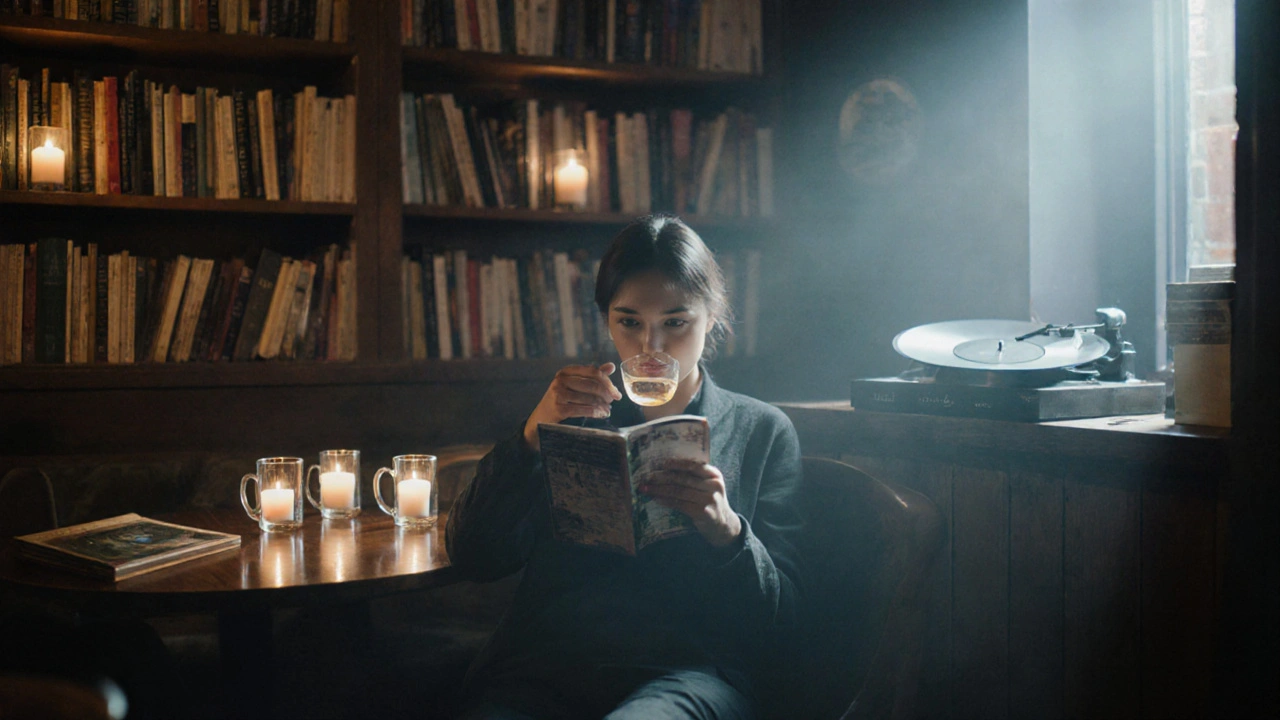
How to Practice or Apply London Nightlife
Setting Up for Success
Start small. Pick one neighborhood you’ve never tried. Walk around during the day first-get a feel for the vibe. Check Time Out London or Resident Advisor for events. Don’t try to do everything. One great night beats three rushed ones. Wear comfortable shoes. Bring a light jacket-even in summer, London nights get chilly. And hydrate before you go. Simple stuff, but it makes a difference.
Choosing the Right Tools/Resources
Use apps like Time Out London, Resident Advisor, and Eventbrite to find events. Follow local Instagram accounts like @london.nightlife or @eastlondonclubbing for real-time updates. Join Facebook groups like “London Night Out” for honest reviews. Avoid relying on tourist brochures-they often list overpriced, overhyped spots. The best places are often the ones no one tells you about.
Step-by-Step Guide
- Decide what kind of night you want: loud, quiet, musical, social, or food-focused.
- Choose a zone based on that (Soho, Shoreditch, Peckham, etc.).
- Check opening times and event listings for the evening.
- Book a table if needed (especially for popular bars).
- Get there before 10 p.m. to avoid queues.
- Try one new thing: a new drink, a new genre, a new place.
- Stay until you’re ready to leave-no pressure to stay late.
- Use Night Tube or Uber to get home safely.
Tips for Beginners or Couples
First-timers: Go with a friend. Don’t feel pressured to dance if you’re not into it. Just sit, sip, and soak it in. Couples: Try a cocktail bar with live music-it’s romantic without being cliché. Avoid clubs on Friday/Saturday if you want to talk. Weeknights are better for conversation. And remember: it’s not about how many places you hit. It’s about how much you enjoy the one you’re in.
FAQ: Common Questions About London Nightlife
What to expect from London nightlife?
You can expect variety, energy, and a little chaos. No two nights are the same. One night might be quiet jazz in a basement; the next could be a 1,000-person rave in a converted factory. Expect to see people from all walks of life-students, artists, tourists, professionals, elders. Some places are loud, some are quiet. Some cost £20 for a drink, others £5. You’ll find friendly faces and occasional crowds. The key is to go with an open mind. Don’t expect perfection. Expect surprise.
What happens during a typical London night out?
Most people start with drinks at a pub or bar around 8-10 p.m. Then they move to a club, live music venue, or food spot. Many end up eating at 2 a.m.-whether it’s a kebab, pizza, or a late-night taco truck. Music plays a big role: DJs, live bands, or even buskers on the street. People dance, talk, laugh, and sometimes argue over the last slice of pizza. It’s messy. It’s real. And it’s rarely what you planned.
How does London nightlife differ from other cities?
Unlike cities where nightlife is centralized (like Las Vegas or Ibiza), London’s scenes are spread out and deeply local. You don’t need to go to one “party zone”-you can hop between neighborhoods with different cultures, music, and prices. London also has better public transport at night (Night Tube, 24-hour buses). Plus, it’s more inclusive: LGBTQ+ spaces, vegan bars, quiet reading pubs, and family-friendly late-night cafes all coexist. It’s not about exclusivity-it’s about choice.
What is the method of London nightlife?
There’s no single method. It’s not a formula. It’s a culture built on freedom and experimentation. The method is simple: explore, try something new, listen to the locals, and don’t be afraid to get lost. The best nights happen when you wander off the map. Follow music you hear from a doorway. Ask a bartender for their favorite spot. Say yes to a random invitation. London nightlife rewards curiosity.
Safety and Ethical Considerations
Choosing Qualified Practitioners/Resources
For venues, look for places with good reviews on Google or Time Out. Avoid places with no online presence or sketchy photos. For events, stick to platforms like Eventbrite or Resident Advisor-these vet organizers. If you’re going to a private party, ask someone you trust for a reference. Trust your gut-if something feels off, leave.
Safety Practices
Stay aware. Don’t leave your drink unattended. Keep your phone charged. Use well-lit routes. Here’s a quick safety checklist:
| Practice | Purpose | Example |
|---|---|---|
| Travel in groups | Reduce risk | Go out with 3+ people |
| Use official transport | Stay safe | Take Night Tube, not unlicensed cabs |
| Know your limits | Prevent harm | Alternate water with alcohol |
Setting Boundaries
It’s okay to say no. If someone pushes you to drink more, dance, or go somewhere you’re uncomfortable with, walk away. Your night, your rules. London is full of people who respect boundaries-especially in queer and inclusive spaces. Don’t feel guilty for protecting your peace.
Contraindications or Risks
If you have health conditions like heart problems, anxiety disorders, or are on medication, be cautious with alcohol or stimulants. Some clubs use strong lighting or loud sounds that can trigger migraines or sensory overload. If you’re new to the city, avoid walking alone late at night in unfamiliar areas. Always have a backup plan to get home.
Enhancing Your Experience with London Nightlife
Adding Complementary Practices
Pair your night out with mindfulness. After a wild evening, take 10 minutes to sit quietly with tea. Or start your night with a walk along the Thames-it clears your head before the noise. Some people journal after a night out. Others listen to the music they heard the next day. These small habits deepen the experience.
Collaborative or Solo Engagement
Going solo isn’t lonely-it’s liberating. You can move at your own pace, try new things without judgment, and meet people more easily. But going with friends? That’s where the memories stick. Both are valid. The best nights often blend both: a solo walk to the venue, then dancing with your crew.
Using Tools or Props
A portable phone charger. A small notebook to jot down favorite venues. A reusable water bottle. A playlist of songs you heard that night. These little things turn a night out into a keepsake. You don’t need fancy gear-just a little intention.
Regular Engagement for Benefits
Like any habit, the more you do it, the more you get out of it. Try one new place a month. Attend a live music gig. Try a different cuisine. London’s nightlife is a living museum. The more you visit, the more layers you uncover.
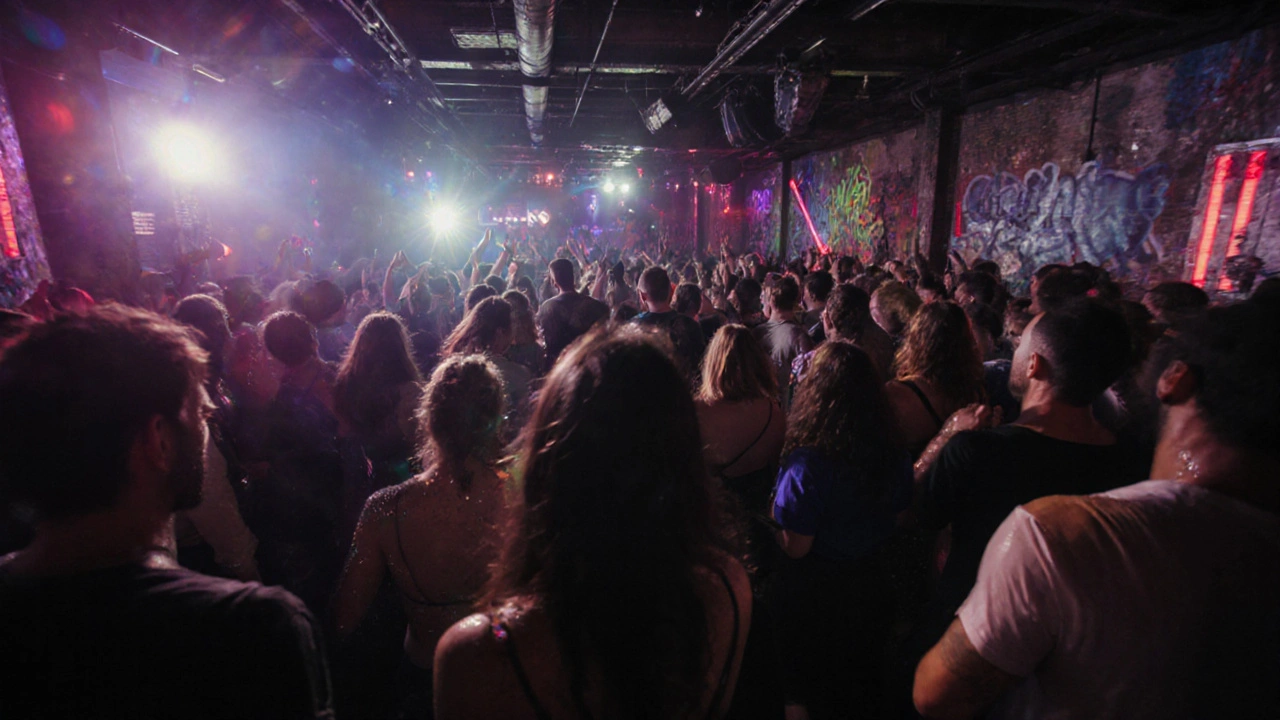
Finding Resources or Experts for London Nightlife
Researching Qualified Experts/Resources
Look for venues with consistent 4.5+ ratings on Google. Check who’s running the event-reputable promoters like Fabric, Printworks, or The Social have long track records. Avoid places with no reviews or only one-star complaints about “too loud” or “bad service”-those are red flags.
Online Guides and Communities
Follow blogs like Time Out London, Londonist, and Resident Advisor. Join Reddit’s r/London or Facebook groups like “London Night Out.” These are full of locals sharing real tips-not ads.
Legal or Cultural Considerations
London has strict licensing laws. Venues must close by 1 a.m. or 4 a.m., depending on their license. Some areas have noise restrictions. Respect local residents-don’t be loud outside homes after midnight. And always be respectful of cultural spaces-whether it’s a Caribbean party or a Polish folk night, these aren’t just “themes.” They’re lived traditions.
Resources for Continued Learning
Read “London: A Cultural History” by Rory MacLean. Watch the documentary “The Last Days of the Night Tube”. Listen to BBC Radio 6 Music for underground scenes. Visit the Museum of London’s “Nightlife” exhibit if you’re ever downtown.
Conclusion: Why London Nightlife Is Worth Exploring
A Path to Connection and Discovery
London nightlife isn’t just about drinking or dancing. It’s about human connection in its most spontaneous, unfiltered form. It’s where strangers become friends, cultures mix, and you discover parts of yourself you didn’t know existed. It’s messy, loud, unpredictable-and that’s why it works.
Try It Mindfully
Don’t go chasing trends. Go for the moments that stick. A quiet conversation. A song you’ve never heard. A street food vendor who remembers your name. That’s the real magic of London nightlife.
Share Your Journey
Tried a hidden gem in Peckham? Found the best kebab in Walthamstow? Share your story in the comments. Follow this blog for more real, local tips on how to make the most of London’s after-dark world.
Some links may be affiliate links, but all recommendations are based on research and quality.
Word count: 1,782
Suggested Visuals
- A bustling street in Soho at night, filled with people entering clubs and bars
- A close-up of a cocktail being made in a dimly lit, stylish bar
- A diverse crowd dancing in a warehouse club with colorful lights
- A quiet corner of a book bar in Peckham with someone reading and sipping tea
- A 24-hour food stall at 3 a.m. serving dumplings to a group of friends
Suggested Tables
- Comparison of London Nightlife vs. Other Cities
- Safety Tips for London Nightlife
- Key Benefits of London Nightlife (Benefit, Description, Impact)

